The Pilgrim’s Way

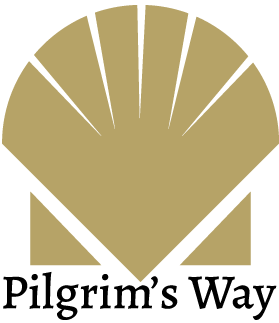
We live in an ubiquitous, fast changing culture that is no longer shaped or guided by a Christian worldview. Cultural norms often run counter to and undermine the virtues and manners parents most wish to instill in their children.
The most striking trend in American religion in recent years is the growing percentage of adults who do not identify with a religious group. The vast majority of these “nones” (78%) say they were raised as a member of a religious group before shedding that identity.
Over half left their childhood faith over a lack of belief.
The primary arena for Christian formation and discipleship is the home and the primary catechist of the child is the parent. The parish and family are partners in the work and privilege of bringing our children up to know God, to love God, and to serve God.
The challenges and opportunities of witnessing to God’s love and grace in this cultural context requires a people willing and able to respond to this calling. The main work of the Christian community after the worship of Almighty God is the formation of its people for effective witness and service.
How do we create an environment in which the Holy Spirit gives our children a “sticky” faith that will go with them when they leave Good Shepherd and enter the wider world?
What would a “graduate” of Good Shepherd look like? What would that person have learned and experienced at Good Shepherd and at home that gives them the faith foundation on which to build a wholesome and meaningful adult life in Christ?
The Pilgrim’s Way is an integrated and comprehensive attempt to give our students the “sticky” faith that comes from relationship with and through Jesus Christ.
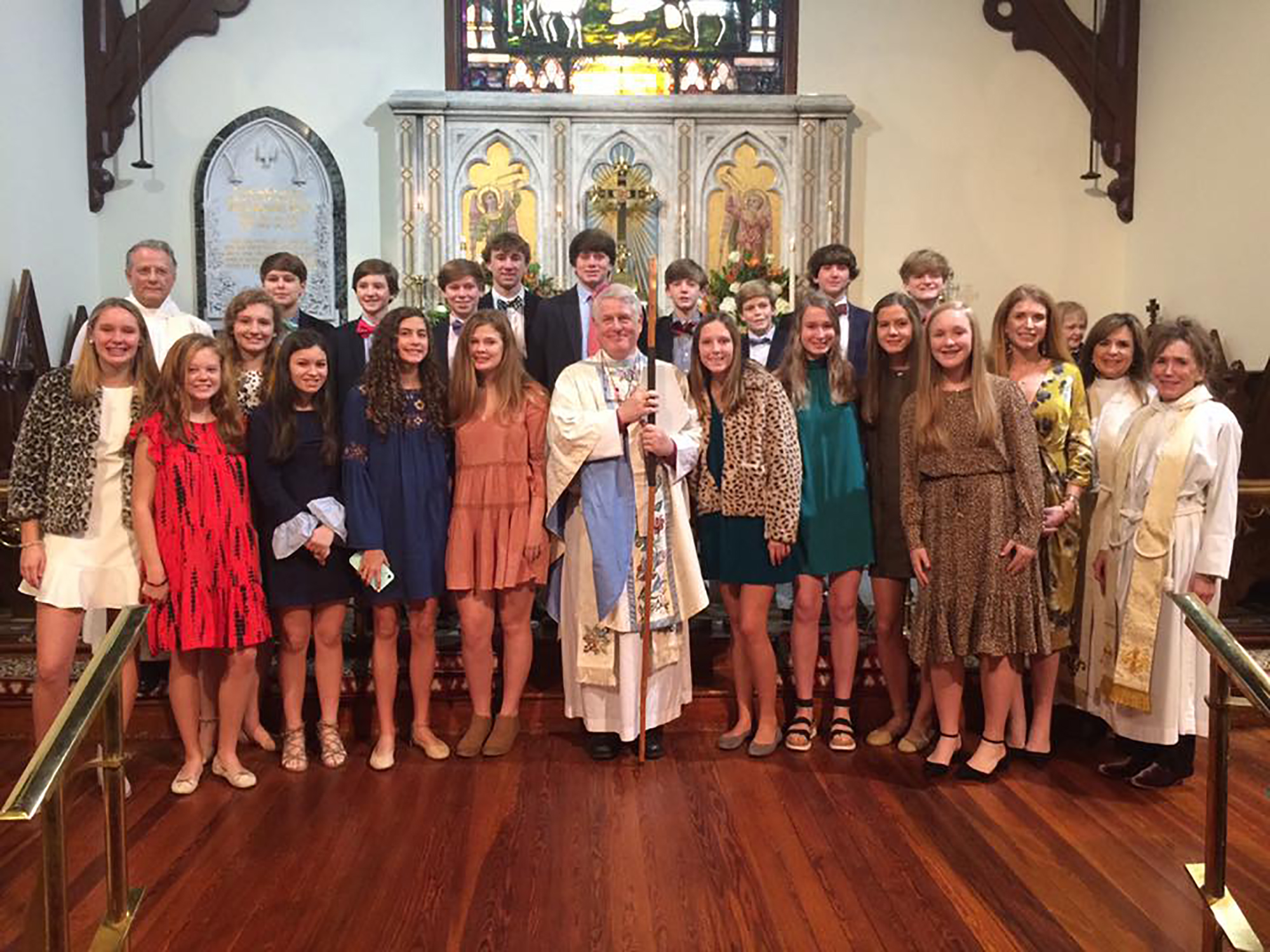
What does a “graduate” of Good Shepherd look like?
A Good Shepherd graduate is a believer in the Triune God of grace and glory, of love and mercy, revealed in the life, death, resurrection and ascension of Jesus Christ, and who is a disciple of Jesus, following him in the Way that leads to fullness of life in this world and everlasting life in the world to come.
A Good Shepherd graduate is prepared to engage the work of building an adult life that glorifies God, is a blessing to others, and brings joy to the self.
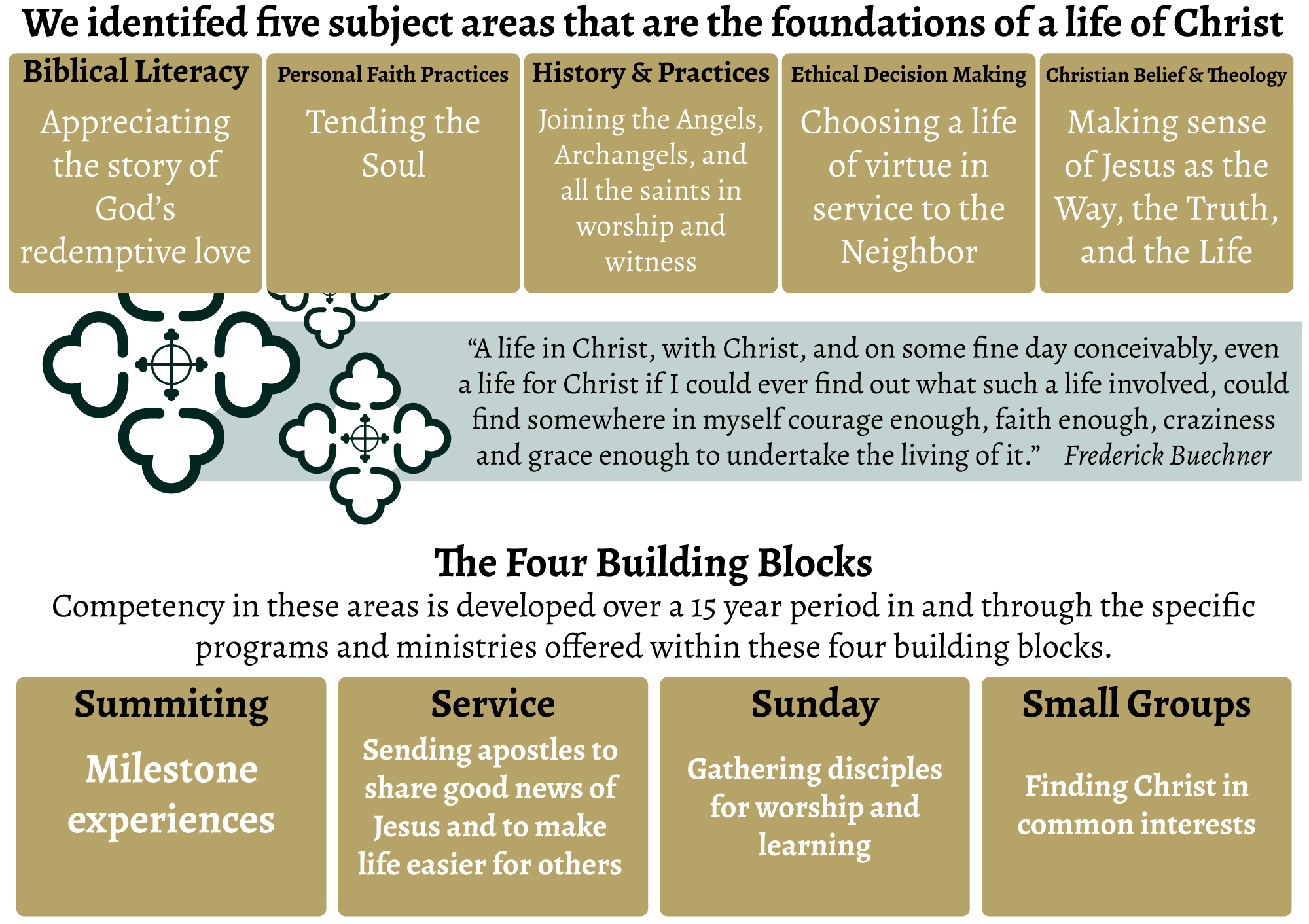
the ministries in each building block

The Formation Arc
Movement from one point to another over an extended distance or period of time follows an arc. Imagine a ship on the ocean or a transatlantic flight, while they appear to travel along a straight line, they are actually traversing an arc.
“Arc” is also a play on words taken from the story of Noah’s Ark and the Church’s use of that image to describe itself as the Ark of Salvation. In Hebrew and Christian scripture, it is those who enter the “Ark” who are saved.
Our use of the expression refers first to the totality of Good Shepherd’s offerings on behalf of our children and their life in Christ. It also refers to the syllabus we have created as our formation guide.
The formation arc offers:
- A comprehensive, integrated approach to Christian Formation
- Content that is catechetically and scripturally based
- A teaching guide that allows leaders to be effective catechists as they themselves grow
- Discernible faith development
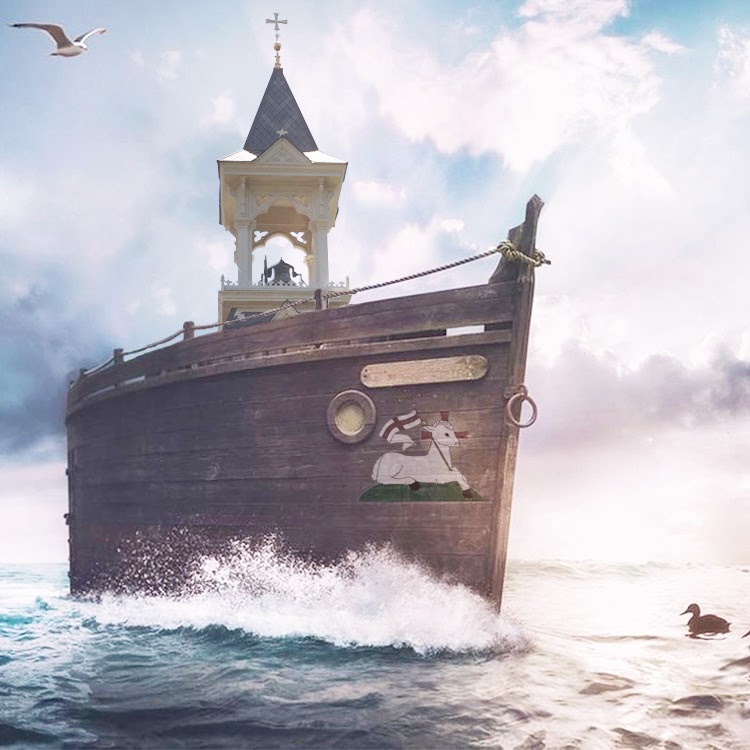
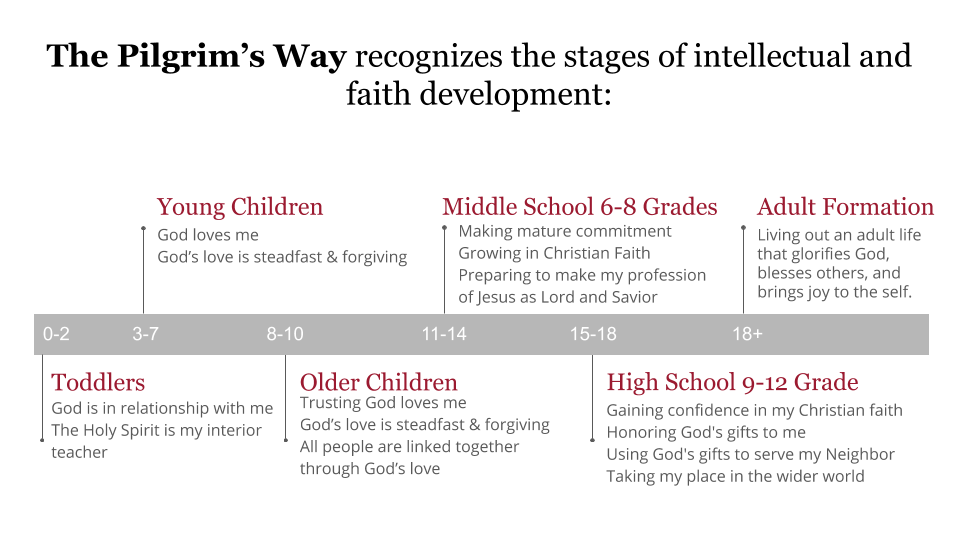
Didache for 6-8 grades
Year Alpha: Foundations
During this cycle, student explore the foundation of beliefs upon which Jesus' teaching is built. We begin with the story of Human Nature and the ever continuing drama of Sin, Judgment, and Redemption.
We continue with the covenants God has made with humanity and how they define our relationship to God.
A deep exploration of the Ten Commandments as Rule of Life follows.
Year Beta: Beliefs
This year begins with a study of the Beatitudes as guidance to the Disciple as they follow Jesus.
Then we explore the nature and lessons held within major parables, and how Jesus used storytelling to teach.
We end the year by studying the Nicene Creed line by line in order to better understand our personal and corporate beliefs.
Year Gamma: Episcopal Belief and Practice
This year is a thorough exploration of the Book of Common Prayer with the knowledge that "what we pray is what believe." The guiding curriculum for this study is Practicing our Faith by Forward Movement Publishing. From their website:
"Take a journey through The Book of Common Prayer, the Christian life, and basic beliefs of our faith in this 26-session curriculum. Practicing Our Faith walks us through the liturgical year, the sacraments of the church, habits of daily prayer, and the teachings of Anglican Christianity. See how our prayer shapes our belief and our lives and how our beliefs lead us into a deeper relationship with Jesus Christ."
didache for 9-12 grades
Year Alpha: Discipleship
Biblical Literacy, Ethical Decision Making, History & Practices, Christian Belief
A year of intensive study into the Gospel of Matthew, beginning with the calling of the Disciples, through the Sermon on the Mount, and end with the Sending of the 12.
Each Sunday, we hear scripture, walk through an understanding of it with our teachers, engage in an activity to experience the lesson it teaches, and discuss it's implications on our every day lives.
Year Beta: Self Care
Tending the Soul, Ethical Decision Making, Personal Faith Practices
We know that today’s teens face a myriad of stresses and that many face considerable challenges in their homes, neighborhoods, and at school. [This curriculum] has been created to help young people see how all areas of their lives are interconnected, have a safe place to talk about life, and to empower them to make healthy choices, choices that might make a big difference in how the beginning of their adult life will look.
Year Gamma: Christian Responses
Biblical Literacy, Ethical Decision Making, Christian Belief
"A topics based experience. In week 1, students choose an issue or challenge faced by teens today. Then in week 2, we invite therapists/psychologists to Didache to pull apart the issue for its mental health ramifications. In week 3, we invite clergy to walk teens through scripture guidance that responds to the work of the previous two weeks. And finally in week 4, we prioritize and organize all the info so that it can be designed into a deliverable." -Samaritan Family Wellness Foundation
Year Delta: The Path, God's redemptive work in Creation
Biblical Literacy, History & Practices, Christian Belief
"Each week, participants read selections from the Bible, with passages excerpted and condensed by biblical scholars for easier reading. Through thought-provoking questions in the curriculum and weekly group discussions, participants examine all of the highlights of the biblical narrative—and learn how the pieces of the story fit together." -Forward Movement